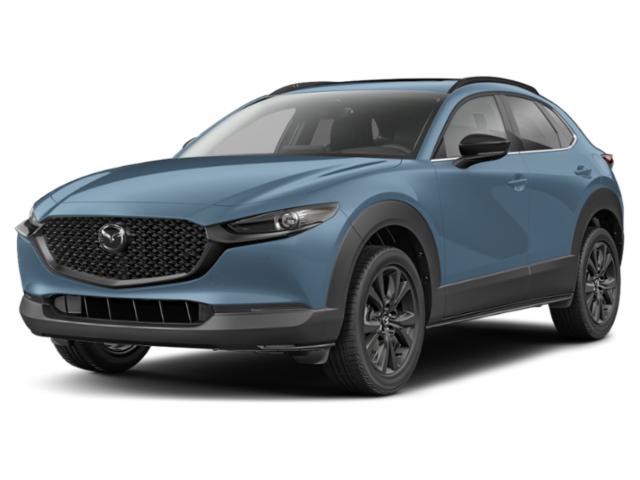Searching the forum, it looks like it's been 2 years since there was a thread purely dedicated to the financial justification of BEV's and/or PHEV's. Surely, a lot has changed, not the least of which is fuel prices.
So let's have it, a pure cost comparison, all emotion and politics aside. Don't tell us why they're better for the environment, you won't sell half the country on that, tell me why they're better for my wallet.
Four categories must be addressed, at some point:
1. Coupes, Sedans, crossovers, and compact SUV's: All the commuter crap you see running to work every morning
2. Full-size SUV's: Anything to compete with Escalade, Suburban, Durango. Must seat 7+.
3. Trucks: Exciting new market segment
4. OPE for homeowners: My Tesla fanboy cousin just bought a BEV zero turn, and even a battery snow blower! Both smaller than what I'd want for my 4 acres of lawn and 7000 sq.ft. of driveway, but I know there are commercial scale equivalents of both. Since I burn way more gas in my lawnmower than even my 12 - 14 mpg cars and trucks, and have seen others here post the same statement, this is a real area of interest.
Remember, many BEV manufacturers will still quote you pricing based on tax incentives and other "assumed cost savings" that you will never see, so you must be diligent in backing those out of the price.
The last I did the math on this, even with a then-long daily commute and 2020 gas prices then at half of today's, and even with concessions (5 seat BEV vs. 7 seat ICE SUV's) there was just no way to close the financial gap on the vehicles I was comparing (all 450 - 500 hp mid-size SUV's and wagons). Today, our commute is zero (we both work from home now), so mileage on each vehicle is likely 2k - 3k... I'm glad I didn't drop the extra coin to save a few mpg's, but there are still many others driving 20k miles per year.
I did the same comparison on 60" zero turn mowers a few years earlier (2016?), and it's too far back now to remember the numbers, but I do recall two problems with the justifications posed by the sellers of BEVs : (1) The up-front cost could NEVER be recouped by a homeowner mowing < 10 acres per week, the price gap was almost laughable. But for commercial applications, an assumed 1000+ hours per year, it got a lot more interesting. (2) For commercial applications, they completely ignored the very substantial cost and logisitcs of the fleet of batteries you'd need to purchase and carry for a typical crew with 2-3 mowers running 8 hours per day, in order to avoid charging them by gasoline during the day and negating most advantages of going BEV.
So let's have it, a pure cost comparison, all emotion and politics aside. Don't tell us why they're better for the environment, you won't sell half the country on that, tell me why they're better for my wallet.
Four categories must be addressed, at some point:
1. Coupes, Sedans, crossovers, and compact SUV's: All the commuter crap you see running to work every morning
2. Full-size SUV's: Anything to compete with Escalade, Suburban, Durango. Must seat 7+.
3. Trucks: Exciting new market segment
4. OPE for homeowners: My Tesla fanboy cousin just bought a BEV zero turn, and even a battery snow blower! Both smaller than what I'd want for my 4 acres of lawn and 7000 sq.ft. of driveway, but I know there are commercial scale equivalents of both. Since I burn way more gas in my lawnmower than even my 12 - 14 mpg cars and trucks, and have seen others here post the same statement, this is a real area of interest.
Remember, many BEV manufacturers will still quote you pricing based on tax incentives and other "assumed cost savings" that you will never see, so you must be diligent in backing those out of the price.
The last I did the math on this, even with a then-long daily commute and 2020 gas prices then at half of today's, and even with concessions (5 seat BEV vs. 7 seat ICE SUV's) there was just no way to close the financial gap on the vehicles I was comparing (all 450 - 500 hp mid-size SUV's and wagons). Today, our commute is zero (we both work from home now), so mileage on each vehicle is likely 2k - 3k... I'm glad I didn't drop the extra coin to save a few mpg's, but there are still many others driving 20k miles per year.
I did the same comparison on 60" zero turn mowers a few years earlier (2016?), and it's too far back now to remember the numbers, but I do recall two problems with the justifications posed by the sellers of BEVs : (1) The up-front cost could NEVER be recouped by a homeowner mowing < 10 acres per week, the price gap was almost laughable. But for commercial applications, an assumed 1000+ hours per year, it got a lot more interesting. (2) For commercial applications, they completely ignored the very substantial cost and logisitcs of the fleet of batteries you'd need to purchase and carry for a typical crew with 2-3 mowers running 8 hours per day, in order to avoid charging them by gasoline during the day and negating most advantages of going BEV.





 On the bright side, it was waaaay better economically than the EV-1.
On the bright side, it was waaaay better economically than the EV-1.